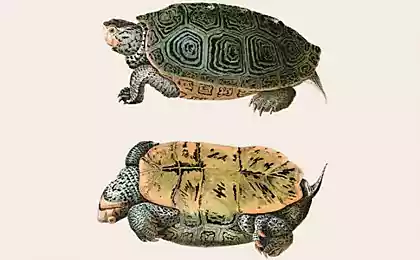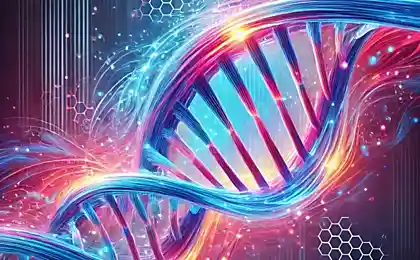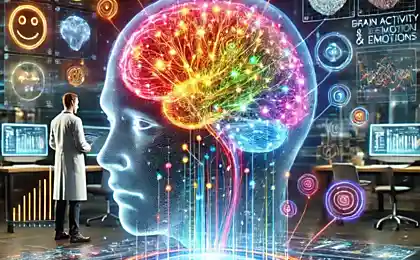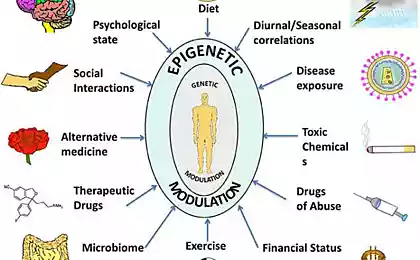539
Why do animals think like human beings
Twenty one million five hundred ninety three thousand one hundred forty six
© Akatre
Animal experiments provoke ethical debate: is it correct to do scientists who took homo sapiens as ideal? But what if new experiences will help other species to evolve and man to get rid of suffering? T&P have translated an article by Tim Mogán about this problem.
Mankind has for centuries believed that has a unique level of intelligence that separates him from other beings. Ability to advanced learning, creative thinking and — perhaps most important — sophisticated communication via speech and language enabled him to rank higher. However, pushing the boundaries of ideas about the brain using animal experiments to study genes associated with intelligence, if it will reach the point where "pull" other species in their intellectual plane?
The idea of development of animal intelligence is not as far-fetched as it might seem at first glance. Last month Ann Graybiel with their colleagues from mit published a study on the relationship between intelligence and genes. The researchers genetically sent mice to create a human form of the FOXP2 — gene that is associated with the ability of the human brain for learning and processing language — to understand, will this affect the development of rodents. Of course, when the modified mice needed for chocolate milk to lay in the maze route, they did it faster than their counterparts without human gene.
The results are inspiring to those who wish to understand the genetic changes in the history of mankind, through which the APE could become "wise" and ultimately, reasonable. However, the essence of the research answers another question: could scientists through fundamental changes, such as those that occurred in the mouse brain, to create intelligent beings with a level of intelligence not lower than human (the concept of "elevation").
In the past, "Eminence" was only a topic for science fiction. Large-scale film "planet of monkeys: Revolution" represented a civilization of intelligent apes, which began just research scientists seeking to find a cure for Alzheimer's disease.
Oddly enough, the film has much more in common with these developments than you might think. In 2011 a research group led by Sam Devalera from Wake forest University in North Carolina, used five rhesus monkeys to study the factors leading to the loss of control over thought processes in people with diseases like Alzheimer's. Scientists have trained monkeys by solving intellectual tasks, including training and identifying images and symbols. Then use the dose of cocaine they dulled the intelligence of animals and repeated the test, having predictably less impressive results.
The next stage showed amazing results. The same primates were equipped with neural prostheses — brain implants designed to monitor and correct functioning of neurons, disabled because of cocaine. These implants have successfully restored normal brain function in macaques under the influence of drugs — but most importantly, if they were activated prior to the introduction of drugs, they increased the characteristics of primates compared with the initial results. The purpose of the experiment was the answer to the question of whether to use neural prosthetics to restore the function of decision-making in people suffering injuries or illnesses (such as Alzheimer's disease). But as far as these experiments served as one, as they show that animals can be done smarter.
"It is our moral duty not only to free ourselves from the Darwinian paradigm, but also help to escape from her other living being"
"All this indicates that humanity is already entering an era of "elevation" of animals, says George Dvorsky of the Institute for ethics and contemporary technologies analysis center, focusing on the implications of future technologies. "As more essential and impressive improvements is still far. View, elevation view, described in science fiction will require more advanced technology than what we have now. This does not mean that eventually we will develop these technologies, because they will primarily use animals to study cognitive problems in humans, including neurodegenerative disorders such as Alzheimer's disease".
This is an important point: even if the very concept of "elevation" can seem fantastic — not a goal to aspire to, potential medical benefits, in terms of overcoming disease and injury suggest further progress on the path that will inevitably lead to "elevate". Of course, the development of such manipulation of animals has become a serious issue for bioethics: in 2011, the Academy of medical Sciences of great Britain has prepared a report on the ethics of studying animals using human specimens, a section of the report was devoted to manipulations with the brain and cognitive abilities.
The problem has caused a broad discussion among theorists. Such as dworsky, believed that the debate should go beyond alone medical and scientific advances. He defended his belief in the "ethical imperative of development", arguing that the developed technology needs to be shared with animals, freeing them from the painful "survival of the fittest" — as much as there is a need for the liberation of the people: "We are steering this planet, it is our moral duty not only to free ourselves from the Darwinian paradigm, but also to help her to escape from the rest of living beings. Our way to post-biological, postdarwinian the government is common".
Other participants in the discussion of this concept in General seemed much more controversial. Paul Graham Raven, a researcher from the University of Sheffield, argued that the position of supporters of "exaltation" is nothing more than scientific arrogance and a mistaken confidence in human dominance over nature, where human intelligence is taken to be the pinnacle of evolution.
Perhaps this debate is a deep moral dilemma. In that time, dworsky and Brin believed that the increase in intelligence to other species will become a common good, their colleague Raven asks questions about whether a person has the right to make such decisions without mutual consent: "Means that we know better what you need other kinds than our own. But looking at how little we understand their needs, I do not believe in this concept, even if it is the predefined".
Source: theoryandpractice.ru
© Akatre
Animal experiments provoke ethical debate: is it correct to do scientists who took homo sapiens as ideal? But what if new experiences will help other species to evolve and man to get rid of suffering? T&P have translated an article by Tim Mogán about this problem.
Mankind has for centuries believed that has a unique level of intelligence that separates him from other beings. Ability to advanced learning, creative thinking and — perhaps most important — sophisticated communication via speech and language enabled him to rank higher. However, pushing the boundaries of ideas about the brain using animal experiments to study genes associated with intelligence, if it will reach the point where "pull" other species in their intellectual plane?
The idea of development of animal intelligence is not as far-fetched as it might seem at first glance. Last month Ann Graybiel with their colleagues from mit published a study on the relationship between intelligence and genes. The researchers genetically sent mice to create a human form of the FOXP2 — gene that is associated with the ability of the human brain for learning and processing language — to understand, will this affect the development of rodents. Of course, when the modified mice needed for chocolate milk to lay in the maze route, they did it faster than their counterparts without human gene.
The results are inspiring to those who wish to understand the genetic changes in the history of mankind, through which the APE could become "wise" and ultimately, reasonable. However, the essence of the research answers another question: could scientists through fundamental changes, such as those that occurred in the mouse brain, to create intelligent beings with a level of intelligence not lower than human (the concept of "elevation").
In the past, "Eminence" was only a topic for science fiction. Large-scale film "planet of monkeys: Revolution" represented a civilization of intelligent apes, which began just research scientists seeking to find a cure for Alzheimer's disease.
Oddly enough, the film has much more in common with these developments than you might think. In 2011 a research group led by Sam Devalera from Wake forest University in North Carolina, used five rhesus monkeys to study the factors leading to the loss of control over thought processes in people with diseases like Alzheimer's. Scientists have trained monkeys by solving intellectual tasks, including training and identifying images and symbols. Then use the dose of cocaine they dulled the intelligence of animals and repeated the test, having predictably less impressive results.
The next stage showed amazing results. The same primates were equipped with neural prostheses — brain implants designed to monitor and correct functioning of neurons, disabled because of cocaine. These implants have successfully restored normal brain function in macaques under the influence of drugs — but most importantly, if they were activated prior to the introduction of drugs, they increased the characteristics of primates compared with the initial results. The purpose of the experiment was the answer to the question of whether to use neural prosthetics to restore the function of decision-making in people suffering injuries or illnesses (such as Alzheimer's disease). But as far as these experiments served as one, as they show that animals can be done smarter.
"It is our moral duty not only to free ourselves from the Darwinian paradigm, but also help to escape from her other living being"
"All this indicates that humanity is already entering an era of "elevation" of animals, says George Dvorsky of the Institute for ethics and contemporary technologies analysis center, focusing on the implications of future technologies. "As more essential and impressive improvements is still far. View, elevation view, described in science fiction will require more advanced technology than what we have now. This does not mean that eventually we will develop these technologies, because they will primarily use animals to study cognitive problems in humans, including neurodegenerative disorders such as Alzheimer's disease".
This is an important point: even if the very concept of "elevation" can seem fantastic — not a goal to aspire to, potential medical benefits, in terms of overcoming disease and injury suggest further progress on the path that will inevitably lead to "elevate". Of course, the development of such manipulation of animals has become a serious issue for bioethics: in 2011, the Academy of medical Sciences of great Britain has prepared a report on the ethics of studying animals using human specimens, a section of the report was devoted to manipulations with the brain and cognitive abilities.
The problem has caused a broad discussion among theorists. Such as dworsky, believed that the debate should go beyond alone medical and scientific advances. He defended his belief in the "ethical imperative of development", arguing that the developed technology needs to be shared with animals, freeing them from the painful "survival of the fittest" — as much as there is a need for the liberation of the people: "We are steering this planet, it is our moral duty not only to free ourselves from the Darwinian paradigm, but also to help her to escape from the rest of living beings. Our way to post-biological, postdarwinian the government is common".
Other participants in the discussion of this concept in General seemed much more controversial. Paul Graham Raven, a researcher from the University of Sheffield, argued that the position of supporters of "exaltation" is nothing more than scientific arrogance and a mistaken confidence in human dominance over nature, where human intelligence is taken to be the pinnacle of evolution.
Perhaps this debate is a deep moral dilemma. In that time, dworsky and Brin believed that the increase in intelligence to other species will become a common good, their colleague Raven asks questions about whether a person has the right to make such decisions without mutual consent: "Means that we know better what you need other kinds than our own. But looking at how little we understand their needs, I do not believe in this concept, even if it is the predefined".
Source: theoryandpractice.ru
Jim Kay is the smartest horse. An incredible story from 1904
Scientists of Vanderbilt University presented a new method for the treatment of epilepsy























